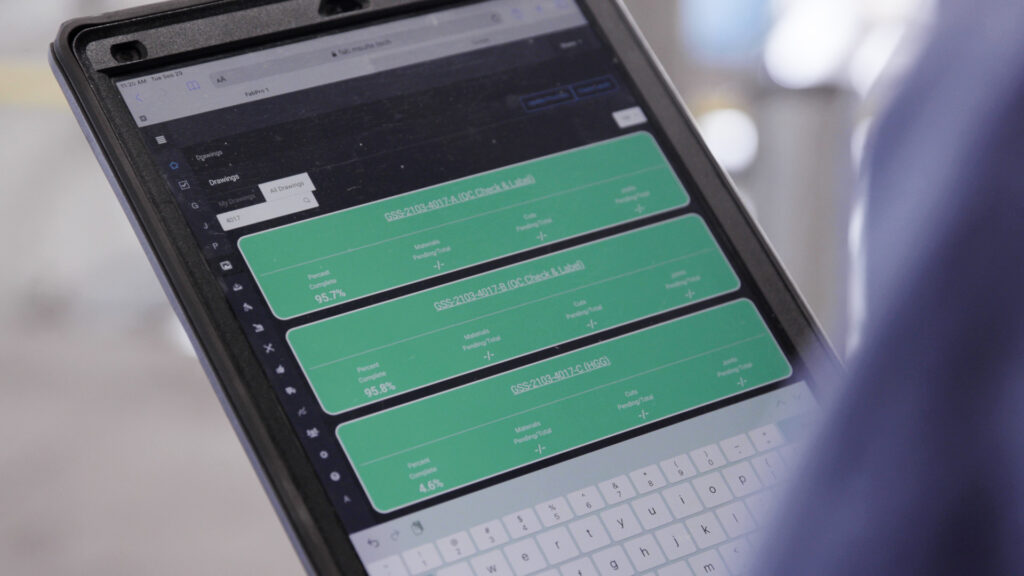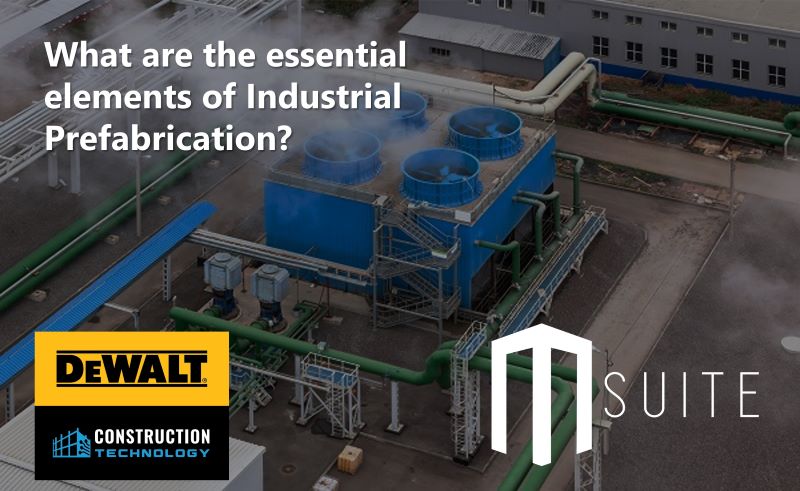Industrial prefabrication is a construction method in which building components are manufactured off-site in a factory setting and transported and assembled on-site. This construction method has gained popularity recently due to its many advantages, including cost savings, time efficiency, and improved quality control.
The essential elements of industrial prefabrication include:
- Design: The design process is critical to successful industrial prefabrication. Building components need to be designed in a way that allows them to be manufactured efficiently and assembled on-site easily.
- Manufacturing: The manufacturing process involves the production of building components in a controlled factory setting. Building components are typically manufactured using advanced machinery, such as computer-controlled cutting and drilling machines, to ensure precision and consistency.
- Transportation: Once the building components are manufactured, they must be transported to the construction site. This typically involves shipping the components on flatbed trucks, railcars, or shipping containers.
- Assembly: The final stage of industrial prefabrication is the assembly of the building components on-site. This involves fitting the pre-manufactured components together, which can be done quickly and efficiently since the parts have been manufactured to precise specifications.
- Quality Control: Industrial prefabrication allows for a high degree of quality control since building components are manufactured in a controlled factory setting. This helps to reduce the risk of errors and defects that can occur during traditional on-site construction.
- Cost Savings: Industrial prefabrication can result in significant cost savings compared to traditional on-site construction. This is because the manufacturing process is more efficient, and the assembly process can be done quickly and easily, which reduces labor costs.
- Time Efficiency: Industrial prefabrication can also save time compared to traditional on-site construction. This is because the manufacturing process can be done concurrently with site preparation, which reduces overall construction time.
Overall, industrial prefabrication offers many benefits over traditional on-site construction, including improved quality control, cost savings, and time efficiency. As a result, it has become an increasingly popular construction method in recent years.
Below are a few major players in the industrial prefabrication industry, including:
- Turner Construction: Turner Construction, one of the largest construction firms in the U.S., has embraced prefabrication and modular construction in recent years. The company has completed several projects using prefabricated building components, including a modular hotel in New York City.
- Mortenson Construction: Mortenson Construction is another major U.S. construction firm that has adopted prefabrication in its projects. The company has developed its own modular construction system, which it uses to build hotels, apartments, and other structures.
- Gilbane Building Company: Gilbane Building Company has also used prefabrication in several of its projects, including the construction of a modular hotel in California. The company has developed its own prefabrication capabilities, including a modular bathroom unit that can be easily installed in hotels and apartment buildings.
- Suffolk Construction: Suffolk Construction has invested heavily in prefabrication and modular construction in recent years. The company has established its own in-house prefabrication shop and has used prefabricated components in several of its projects, including a modular apartment building in Boston.
- ICON Mechanical: Offers full-service mechanical contracting services applying unmatched services and a thoughtful engineering approach to the most complex design-build and design-assist projects. As experts in industrial design with full-service capabilities, they manage the end-to-end process, from design through fabrication to installation.
- J.F. Ahern: Ahern has the resources to tackle projects of all sizes, from $100 to over $50 million, in various industries, including healthcare, cold storage, power generation, healthcare, cold storage, and warehousing.
- Universal Piping Industries: UPI has developed processes and procedures that have allowed them to become a leader in the design, fabrication, and installation of industrial process systems and HVAC systems for industrial/commercial buildings.
- Andy J Egan: As a century-old contractor, Egan has provided mechanical services for thousands of major West Michigan projects and has turnkey services for any industrial, commercial, or institutional project.
These companies are just a few examples of the major players in the industrial prefabrication industry. As the demand for industrial prefabrication continues to grow, more companies will likely enter the market and develop their own specialized techniques and systems.

How does the Fabrication Shop Software help industrial prefabrication companies?
Fabrication shop software is designed to help industrial prefabrication companies streamline their manufacturing processes and improve overall efficiency. Here are some ways that fabrication shop software can help:
- Design and Planning: Helps with the design and planning stages of prefabrication by providing tools to create detailed 3D models of building components, generate accurate bills of materials, and optimize the manufacturing process for efficiency.
- Inventory Management: Assists contractors in managing inventory by tracking raw materials, finished goods, and work in progress. This allows companies to maintain accurate inventory levels and avoid shortages or excess inventory.
- Manufacturing Execution: Helps manage the manufacturing process by providing real-time visibility into the status of each job, tracking employee time and productivity, and scheduling resources to optimize production.
- Quality Control: Fab Shop software ensures quality control by providing inspection, testing, and reporting tools. This helps ensure that finished products meet the required specifications and quality standards.
- Integration: Fabrication shop software can integrate with other systems such as ERP, CAD, and BIM, allowing for seamless data transfer between systems and improved collaboration among different departments.
Interested in learning how industrial fabrication shop software can help your company improve efficiency, reduce waste, and ensure high-quality products? MSUITE allows companies to streamline manufacturing processes, increase productivity, and ultimately improve their bottom line.







